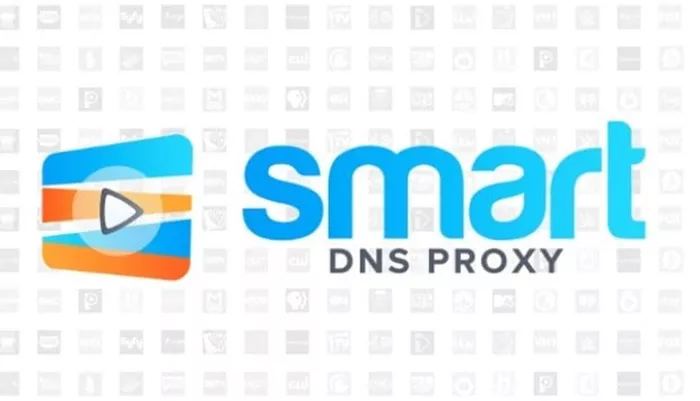Smart DNS proxies are widely used for bypassing geo-restrictions on websites and streaming platforms. However, many people wonder if they are safe to use. In this article, we will explore how Smart DNS proxies work, their security risks, and whether they are a good option for protecting your online activities.
What Is a Smart DNS Proxy?
A Smart DNS proxy is a service that allows users to access restricted content by altering their Domain Name System (DNS) settings. Unlike VPNs, which encrypt traffic, Smart DNS proxies only reroute DNS requests to make it appear as if the user is in a different location.
How Does a Smart DNS Proxy Work?
- The user configures their device to use the Smart DNS provider’s servers.
- When the user accesses a restricted website, the request is sent to the Smart DNS server.
- The server modifies the request, making it seem like it is coming from an allowed region.
- The website grants access to the content.
Because Smart DNS proxies do not encrypt data, they provide faster speeds compared to VPNs. This makes them a popular choice for streaming services like Netflix, Hulu, and BBC iPlayer.
Is Smart DNS Proxy Secure?
Security is one of the biggest concerns when using a Smart DNS proxy. Since it does not encrypt data, it does not provide the same level of protection as a VPN. Here are some key security concerns:
No Encryption
A Smart DNS proxy does not encrypt user data, which means that internet service providers (ISPs), hackers, and government agencies can potentially monitor online activities.
No IP Address Masking
Unlike VPNs, which replace the user’s IP address with a different one, Smart DNS proxies do not hide the original IP address. This means that websites and online services can still see the user’s real IP.
Vulnerability to DNS Hijacking
Because a Smart DNS proxy redirects DNS queries, attackers can manipulate these queries to send users to malicious websites. If a provider does not use secure DNS servers, it could expose users to phishing attacks.
Data Logging and Privacy Risks
Some Smart DNS proxy providers may log user data and sell it to third parties. It is essential to check the provider’s privacy policy to ensure they do not collect or share personal information.
When Is It Safe to Use a Smart DNS Proxy?
Although Smart DNS proxies have security risks, they can still be safe if used correctly. Here are some situations where they are considered safe:
Streaming Geo-Blocked Content
If the primary goal is to watch streaming services that are restricted in certain regions, using a Smart DNS proxy is generally safe. Since there is no need for encryption in streaming, the lack of security features does not pose a significant risk.
Public Information Browsing
For browsing websites that do not require personal data input, a Smart DNS proxy is a convenient way to access geo-restricted content without compromising security.
Trusted Providers
Using a reputable Smart DNS proxy provider that does not log user data and uses secure DNS servers can enhance safety. Researching customer reviews and privacy policies is essential before choosing a provider.
When Should You Avoid Using a Smart DNS Proxy?
There are certain situations where using a Smart DNS proxy is not recommended:
Handling Sensitive Information
If you are accessing banking websites, entering passwords, or dealing with sensitive data, a Smart DNS proxy does not provide adequate protection. A VPN with encryption is a safer option.
Avoiding Government Censorship
In countries with strict internet regulations, using a Smart DNS proxy may not be enough to bypass censorship. Governments can still track online activities since there is no encryption.
Protecting Against Cyber Threats
If security and anonymity are a priority, a Smart DNS proxy is not a good choice. Hackers can intercept unencrypted data, making users vulnerable to attacks.
Smart DNS Proxy vs. VPN: Which Is Safer?
Both Smart DNS proxies and VPNs serve different purposes, but VPNs are generally safer because they encrypt data and hide IP addresses. Here is a comparison:
| Feature | Smart DNS Proxy | VPN |
| Encryption | No | Yes |
| IP Masking | No | Yes |
| Speed | Faster | Slower |
| Privacy Protection | Low | High |
| Suitable for Streaming | Yes | Yes |
| Suitable for Security | No | Yes |
If security is a top priority, a VPN is the better choice. However, if speed and accessing geo-restricted content are the main concerns, a Smart DNS proxy can be useful.
How to Use a Smart DNS Proxy Safely
If you decide to use a Smart DNS proxy, follow these steps to enhance security:
Choose a Reputable Provider – Research providers that do not log data and have good reviews.
Avoid Free Services – Many free Smart DNS proxies track and sell user data.
Use Secure Websites – Always check for HTTPS encryption when entering sensitive information.
Combine With Other Security Measures – Use a firewall, antivirus software, and a secure browser.
Conclusion
A Smart DNS proxy is a convenient tool for bypassing geo-restrictions, especially for streaming content. However, it lacks encryption, IP masking, and security features, making it unsafe for handling sensitive information. If security and privacy are important, a VPN is a better choice. When using a Smart DNS proxy, selecting a reputable provider and following security best practices can reduce risks.

